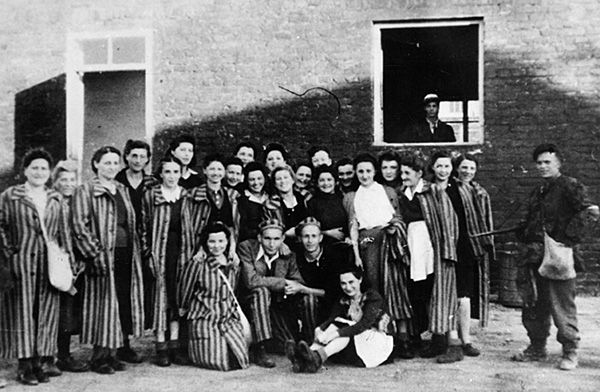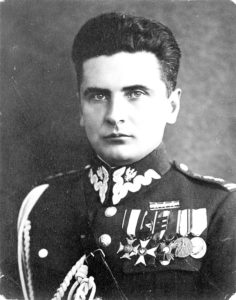The resistance movement against Germany operated in a number of European countries throughout World War II. However, the Polish Underground State was undoubtedly the largest resistance movement in the whole of Europe.
In contrast to France or Belgium, no legitimate Polish authorities would collaborate with their German invaders. The Poles created the overseas-governed underground state in the areas invaded by Germany and the Soviet Union. The government structure was divided into ten or so departments that were very much like pre-war ministries. Several hundred thousand Poles risked their lives in the service of their underground state.

Home Army
The military structures were the first to emerge. In September 1939, an underground military organisation was set up. Reporting directly to the Polish government-in-exile, it gave rise to what is now known as the Home Army. This was the largest military organisation in German-occupied Poland, and at its height, counted about 380,000 members. It also boasted extended field structuresoutside Warsaw. The Home Army carried out numerous sabotage and intelligence actions, and they also provided aid to the Jewish resistance fighters during the Warsaw Ghetto Uprising. The organisation’s main goal was to create a regular army that would be able to seize the country’s independence.
Military and civilian jurisprudence was also present during German occupation. The underground Polish courts held clandestine sessions in which they dealt death sentences to those who performed activities detrimental to the Polish nation, and those who for their own benefit denounced and turned in the Jews to the Germans. There was zero tolerance for collaborating with the Germans. The Poles who did collaborate were treated as traitors.
The underground judicial system passed hundreds of death sentences on German officials and their collaborators. Justice was served, even on Franz Kutschera, the SS and Police Leader in the Warsaw District of the General Government. The German criminal was sentenced to death by the Polish judicial system for launching a reign of terror against the civilian population that included mass executions and numerous round-ups in the streets of Warsaw. The sentence was carried out by a Home Army unit.
 Draconian punishments were meted out for any form of resistance against the German authorities. Service to the Underground Polish State was punishable by death or deportation to a concentration camp. One of the persons affected was General Stefan Rowecki, pseudonym Grot (“Arrowhead”), the most prominent figure of the Polish Underground State and the Home Army’s founder. Soon after his capture by the Gestapo in July 1943 he was transferred to Sachsenhausen. He was tortured and repeatedly encouraged to form an alliance between the Home Army and Germany against the Soviet Union, and later, to stop the Warsaw Uprising. The General remained adamant and was eventually executed.
Draconian punishments were meted out for any form of resistance against the German authorities. Service to the Underground Polish State was punishable by death or deportation to a concentration camp. One of the persons affected was General Stefan Rowecki, pseudonym Grot (“Arrowhead”), the most prominent figure of the Polish Underground State and the Home Army’s founder. Soon after his capture by the Gestapo in July 1943 he was transferred to Sachsenhausen. He was tortured and repeatedly encouraged to form an alliance between the Home Army and Germany against the Soviet Union, and later, to stop the Warsaw Uprising. The General remained adamant and was eventually executed.
Many civilians arrested for underground activity also died in the German camps. The underground education system provided tuition to over one million Polish people throughout the war. Nine thousand teachers and over 600 academic lecturers paid the ultimate price for their activities. The Roman Catholic Church in Poland also suffered repressions. Father Maksymilian Kolbe was only one of thousands of Polish priests who lost their lives in the German concentration camps.



